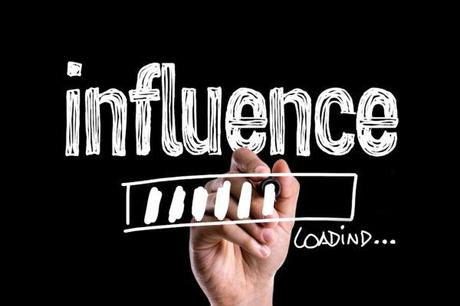Disclaimer: Living the Dream uses demographic data, email opt-ins, display advertising, and affiliate links to operate this site. Please review our Terms and Conditions for more information and our Privacy Policy.
Social media influencer marketing is all the rage these days, with brands looking to partner with just about anyone who has over 1,000 followers on social media (Instagram being the flavor of the day) and a pulse.
With just a nominal following in a niche market, these "influencers" are being invited to media events, given swag, and offered discounts on products in exchange for coverage to their audience.
As a blogger, I've been called an influencer due to my social media fan count and offered many of these freebies in exchange for coverage (often purely on my Instagram alone).
More often than not I say no, and outside of a few perfect fits for our Pittsburgh blog (where I am invited to do something I was going to pay for to feature anyway) the model is not something I am fond of.
While my normal response is simply " don't call me an influencer " and to quote my advertising rates, today I really want to highlight why I take that stance.
Social Media Influencer Marketing is a Race to the Bottom

Influencer marketing campaigns often follow a similar pattern: a brand reaches out to dozens if not hundreds of influencers who want swag and offer them a cheap item (often under $50) in exchange for coverage. Some will ask for a fee for promotion (us included), but in sending out hundreds of offers the brand is likely to find many who are head-over-heels excited to provide coverage for free.
The brand gets a number of enthusiastic shout-outs across many profiles, the influencers get swag of minimal value, someone checks a box somewhere to show their bosses, and it is called "good marketing."
This is not a new phenomenon. We've seen something similar time and time again in the paid advertising world.
New marketing firms would come out offering bloggers and media high paying opportunities to work with well known brands, but as more and more bloggers and media jumped onto the bandwagon rates would decrease as someone was always willing to do the job for less.
With influencer marketing we've reached the proverbial bottom as money for work is off the table entirely as there are now enough people of any background who are willing to simply work for swag.
Unfortunately, the brands who employ this method of advertising are probably missing out of more in the long run.
Those Who Are Most Desperate Have The Least to Offer

There are a number of reasons for why I think this, and some of the flaws I see in social media influencer marketing are as follows:
- The reach of users with small accounts is often minuscule and their audience is likely not even defined.
- Scaling on volume can become cost prohibitive.
- Sending out 100 products to 100 individuals takes significantly more time than mailing a product and a check to five users with a larger audience who will invariably get better reach for the same upfront cost.
- Influencers in a niche or similar geographical marketplace often have the same followers.
- These are likely other influencers. Not really a target audience for any brand, but good exposure to find more people who want that product for free!
- Social media is often fake and can be easily gamed for the look of popularity.
- Comment pods, anyone? Does anyone even look at the profiles of those who comment anymore?
- Influencers may or may not know how to accurately report results, and may not even report any results at all.
- Can an influencer tell you that they had over $250,000 in logged affiliate sales in 2018? I can (and did). I can only fathom how much more it was outside of trackable links.
- Coverage is purely on social media, where the network could tank organic reach tomorrow. Campaign longevity is minimal at best.
Even worse than the above problems? Once a brand gets onto the influencer marketing train odds are good they wont want to get off it.
After all, why pay for advertising with a brand when influencers will work for free? With influencer marketing, you truly get what you pay for.
( Hint: Its likely nothing.)
Social Influencer vs Brand - The Difference Matters

Since a lot of this comes down to terminology, there are some very important distinctions to be made. A case could be made to really call us "influencers" despite our opposition to the use of the word.
After musing this one over for quite some time, I came up with a few important distinctions for why we refer to our sites as a brand and not as us being a self-described influencer.
An influencer:
- Is personality based and focuses on the person as much as the mission.
- i.e. "Look at me doing a thing."
- Is primarily social media oriented, often just on one network.
- Lives and dies on trends- one algorithm change can ruin it all.
- Touts follower count as the backbone for their "influence."
- Content is created for comps and some quick income- if they stop posting, they go away.
On the other hand, a brand:
- Can be personality based but puts the mission over the person.
- i.e. "Here is a thing to do that we liked."
- Is oriented around a website and multiple social media networks.
- Embraces trends but only to achieve the long-term goal- they're able to adapt to algorithm changes.
- Can break down influence in real numbers (views, clicks, and even down to converted sales via affiliate links).
- Plays the long game for income generation and content views- if they stop posting, the brand carries itself.
Longevity is the Key Difference
When it comes down to it, the last bullet point in each description above highlights the main difference in the influencer vs brand debate in my mind. While both have influence by definition standards, the key distinction is longevity.
As influencers tend to base themselves on one or two social networks, if they stop posting for a day, week, or month their reach goes to zero. Their followers remain, but no one will be seeing or sharing their content if no new content is posted.
Brands who build websites can create long-term traffic. If they stop posting for a day, week, or month their traffic may dip, but the brand can carry itself through SEO and user generated shares.
Their followers see the content, keep sharing, and traffic (and income) continues- allowing for the brand to stick around for quite some time. In fact, we know bloggers who stopped writing entirely and have continued to receive residual ad income, affiliate payments, and pitches for years - that is the power of a brand.
But, perhaps influencers will have their place in the world over time as well. In the not-so-distant past there was another dirty buzzword that infuriated everyone the moment it was said.
That word was blogger.While I am excited to see what the future will bring, as far as influencer marketing is considered, could we just stop? That'd actually be great for all involved.
Grab a Domain and Start a New Blog Today
Looking to start a blog? Find a domain name and grab a server on Bluehost today!
If you are looking for tips, be sure to read our detailed guide on how to start a travel blog!
Looking to Improve Your Existing Blog?
Have an existing blog that is in need of an upgrade? Check out the following services we personally use on our sites!
If you are looking for tips, check out our Blog Your Trip series!
